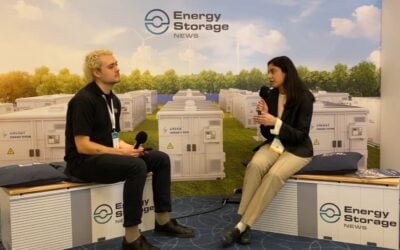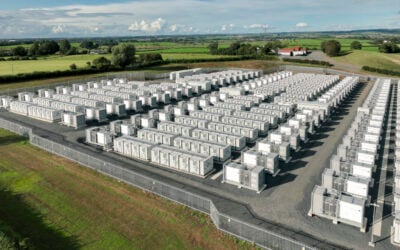The recognition by regulators of the need for an enlarged role for energy storage in the UK is a major milestone for the sector, trade associations in the country have said.
After a year-long study into the flexibility of the UK electricity network, Ofgem published a position paper that has committed to enable new business models for energy storage providers while also helping network operators and consumers to take advantage of flexibility. It also suggests encouraging demand response efforts by businesses and promoting the use of rooftop solar and integrated generation technology for new builds.
“This is the start of the recognition by government that technology can answer solve many of their energy problems,” said Ray Noble of the UK’s Renewable Energy Association.
“As the government needs an energy strategy, now is the time for industry and government to work together on the part that storage will play both today and in the future.
Try Premium for just $1
- Full premium access for the first month at only $1
- Converts to an annual rate after 30 days unless cancelled
- Cancel anytime during the trial period
Premium Benefits
- Expert industry analysis and interviews
- Digital access to PV Tech Power journal
- Exclusive event discounts
Or get the full Premium subscription right away
Or continue reading this article for free
“Storage is now on a similar cost reduction curve as solar has already demonstrated. Solar is now close to grid parity in the UK and with storage it will help transform distributed generation. Nothing is going to stop this happening and hopefully this is the first signs of Ofgem recognition,” added Noble.
The potential of energy storage in the UK has been hamstrung by a regulatory framework that put a firewall between electricity generators and distribution companies. The Ofgem position paper is a further sign that there is a concerted effort to change that situation.
“It’s encouraging that Ofgem recognise the opportunity provided by distributed generation like solar, and the role that storage can play in providing flexibility,” said David Pickup, business analyst, Solar Trade Association.
“The actions they are planning to take over the next year will help set the groundwork for an energy system increasingly powered by solar together with storage, described more and more by analysts as the future of energy,” he added.
Ofgem has stated that it will now seek to “clarify the legal and commercial status of storage” and identify any regulatory changes that may be required.
Ofgem will be speaking at the Solar Energy UK event in Birmingham, 13-15 October, addressing the issue of the right to local supply and how to deploy solar with reduced grid access.
Additional reporting by Andy Colthorpe.
The commitement by Ofgem to explore regulatroy changes makes the future of UK energy storage more transparent. Image credit: Andy Colthorpe





